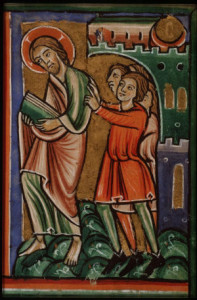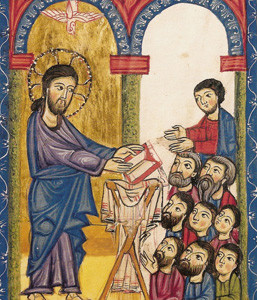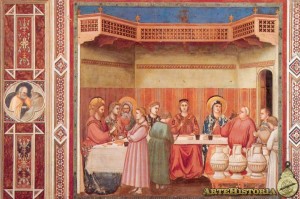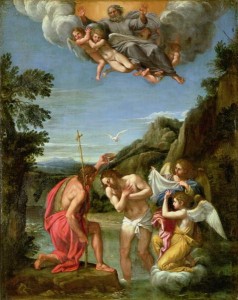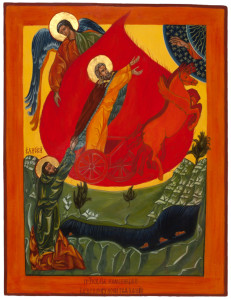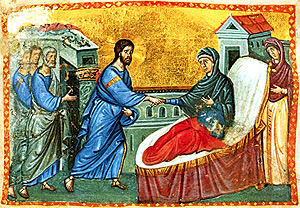Thoughts on Today’s Lessons for Jan. 8, 2017
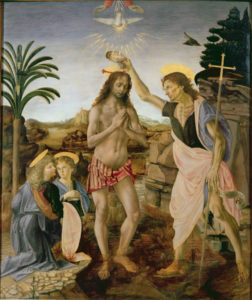
The Baptism of Christ, 1475. Oil painting on wood by Andrea del Verrocchio with his student, Leonardo da Vinci. Uffizi Gallery, Florence.
First Reading, Selection I: Isaiah 42:1-9
In light and breath, God’s spirit comes down to the people. Justice and righteousness are served, the oppressed are set free, and all is new. In the prophet Isaiah’s call to Israel in exile we see a vision that will be reflected on Jordan’s bank at the baptism of Jesus in today’s Gospel. Even in exile, the prophet tells the people, the God who created all things will take the people by the hand as God’s servant, sending them out as we are sent out in baptism, to be a light to the world and bring righteousness to all the nations.
Have you ever sat on a porch with a mixture of fear and awe, watching a fierce summer thunderstorm pass by with lightning and thunder, wind and rain, whipping the trees around and whistling through the branches? Even towering oak trees seem to whirl, and large limbs come crashing down. It’s no wonder that the Psalmist chose to portray God’s power and glory in a massive storm that strips the forest bare. And yet, at the end, the people shout “Glory,” hailing God’s power and peace.
Second Reading: Acts 10:34-43
Peter quickly tells the good news of Jesus, starting with his baptism by John when God anointed Jesus through the Holy Spirit with power. Then he briskly recalls how Jesus healed and cast out spirits, was executed on the cross and raised again, and finally commanded his disciples to preach and testify that Jesus Christ is Lord, the Messiah. The verses we hear today gain context from those that come just before and after: At the invitation of Cornelius, a Roman centurion, Peter comes to his house and first begins to evangelize to Gentiles. After this speech, Peter and the apostles baptize Cornelius and all his household, the first Gentile family brought into the new church.
Gospel: Matthew 3:13-17
All four Gospels show us the familiar scene of John baptizing Jesus in the Jordan, with the Holy Spirit coming down as a dove to declare Jesus the son of God. Only in Matthew, however, do we hear what seems an obvious question: Why would Jesus need to repent or be baptized? Jesus should be baptizing John, not the other way around, John declares. But Jesus insists, asking John to baptize him “to fulfill all righteousness,” echoing Isaiah’s call to go out in righteousness to be a light to the world and bring justice to all the nations.


